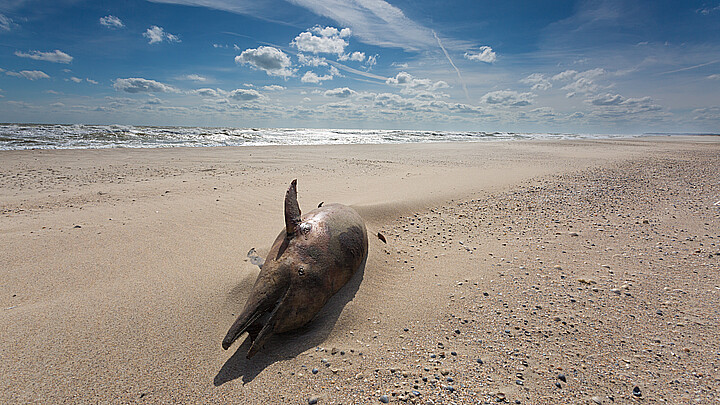Health
Bacteria in ocean plastics could protect against superbugs, scientists say
Researchers at San Diego National University announced that they were able to isolate five antibiotic-producing bacteria from pieces of ocean plastic
June 13, 2022 12:25pm
Updated: June 13, 2022 2:35pm
An international team of researchers led by scientists from the University of California, San Diego School of Medicine, and the University of Pittsburgh is investigating five antibiotic-producing bacteria from pieces of ocean plastic and are testing their efficacy.
"We believe this is a groundbreaking topic and study that promises to be highly cited as we at IPATH and others work to expand the uses of phage therapy," explained study co-author Constance Benson, M.D., professor of medicine and global public health at UC San Diego School of Medicine.
In particular, they investigated whether these antibiotics can help treat nontuberculous mycobacteria (NTM) infections, which are increasingly common among patients with cystic fibrosis or other chronic diseases that damage or destroy the bronchi of the lungs.
Treatment of NTM infections is difficult due to increasing bacterial resistance to antibiotics, which have long been the standard of care.
The results of trials of patients treated with bacteriophage therapy for antibiotic-resistant infections were published last week in the online journal Clinical Infectious Diseases.
Similarly, San Diego National University researchers announced that they succeeded in isolating five antibiotic-producing bacteria from pieces of ocean plastic and tested their use against a range of bacterial targets.
Early findings suggest that these antibiotics are effective against common bacteria as well as two antibiotic-resistant strains, known as "superbugs."
In this case, the researchers incubated high- and low-density polyethylene plastic (the type used to make plastic bags) near the Scripps Pier in La Jolla, California, for 90 days.
Then, they isolated five antibiotic-producing bacteria from ocean plastic, including strains of Bacillus, Phaeobacter, and Vibrio, which they used against a variety of gram-positive and gram-negative targets.
Gram-positive bacteria have a thicker cell wall compared to gram-negative bacteria and are usually more receptive to certain cell wall-targeted antibiotics. The first type of bacteria, in isolation, proved effective against common bacteria and against two antibiotic-resistant strains, according to this research, cited by the Daily Mail.
The Centers for Disease Control estimates that nearly 3 million antibiotic-resistant infections occur annually in the United States, resulting in at least 35,000 deaths.










